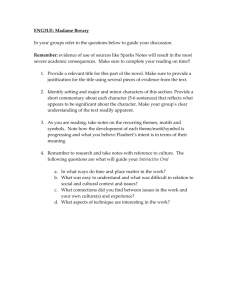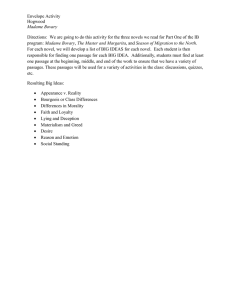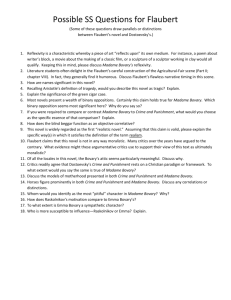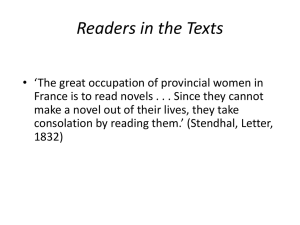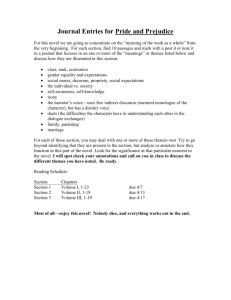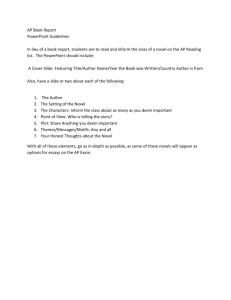Madame Bovary Discussion Topics
advertisement
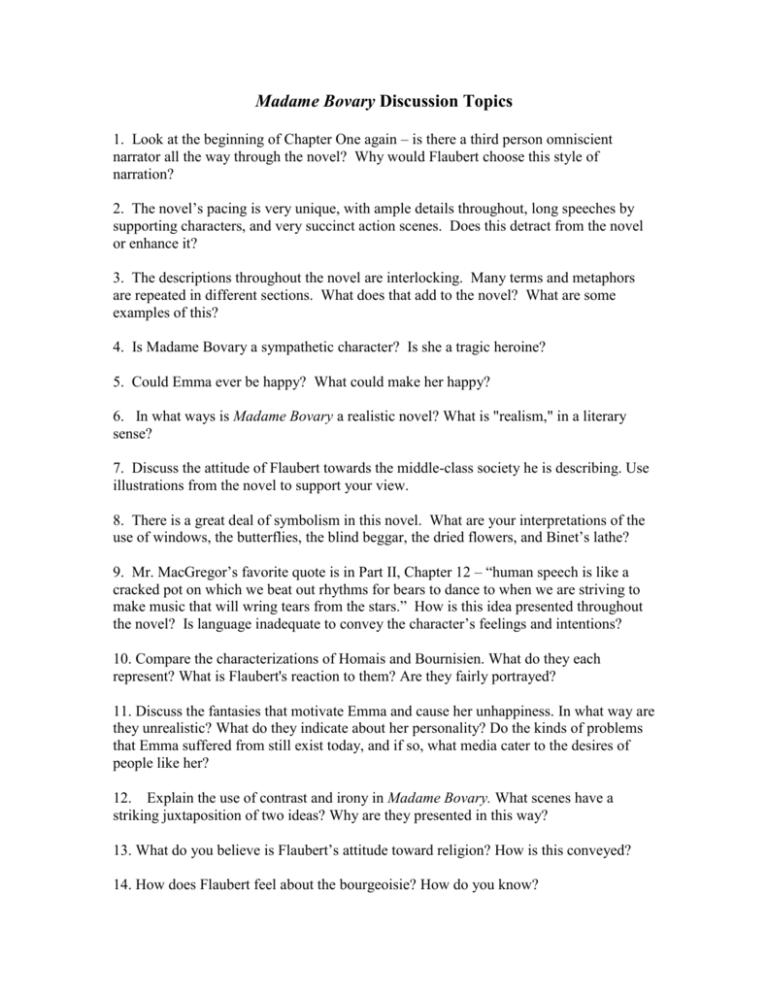
Madame Bovary Discussion Topics 1. Look at the beginning of Chapter One again – is there a third person omniscient narrator all the way through the novel? Why would Flaubert choose this style of narration? 2. The novel’s pacing is very unique, with ample details throughout, long speeches by supporting characters, and very succinct action scenes. Does this detract from the novel or enhance it? 3. The descriptions throughout the novel are interlocking. Many terms and metaphors are repeated in different sections. What does that add to the novel? What are some examples of this? 4. Is Madame Bovary a sympathetic character? Is she a tragic heroine? 5. Could Emma ever be happy? What could make her happy? 6. In what ways is Madame Bovary a realistic novel? What is "realism," in a literary sense? 7. Discuss the attitude of Flaubert towards the middle-class society he is describing. Use illustrations from the novel to support your view. 8. There is a great deal of symbolism in this novel. What are your interpretations of the use of windows, the butterflies, the blind beggar, the dried flowers, and Binet’s lathe? 9. Mr. MacGregor’s favorite quote is in Part II, Chapter 12 – “human speech is like a cracked pot on which we beat out rhythms for bears to dance to when we are striving to make music that will wring tears from the stars.” How is this idea presented throughout the novel? Is language inadequate to convey the character’s feelings and intentions? 10. Compare the characterizations of Homais and Bournisien. What do they each represent? What is Flaubert's reaction to them? Are they fairly portrayed? 11. Discuss the fantasies that motivate Emma and cause her unhappiness. In what way are they unrealistic? What do they indicate about her personality? Do the kinds of problems that Emma suffered from still exist today, and if so, what media cater to the desires of people like her? 12. Explain the use of contrast and irony in Madame Bovary. What scenes have a striking juxtaposition of two ideas? Why are they presented in this way? 13. What do you believe is Flaubert’s attitude toward religion? How is this conveyed? 14. How does Flaubert feel about the bourgeoisie? How do you know?
